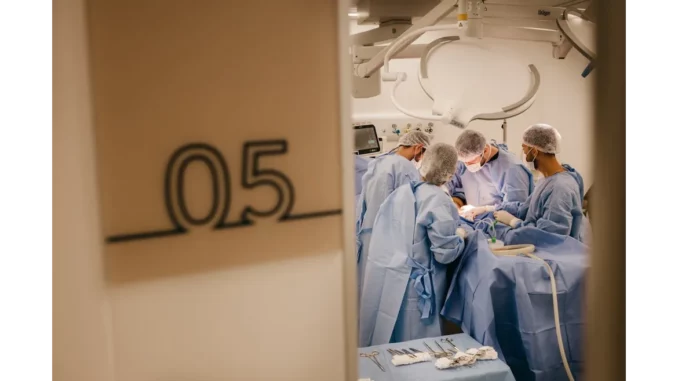
In the field of oncology, one of the most persistent challenges has been the accurate differentiation between aggressive and slow-growing (indolent) forms of cancer. This complexity often results in a broad, non-specific approach to treatment, leading patients to endure therapies that may be unnecessary and potentially harmful. However, the emergence of artificial intelligence (AI) is poised to transform cancer treatment methodologies. At the forefront of this transformation is Ataraxis, a company co-founded by Jan Witowski and Krzysztof Geras, which has developed an AI-powered diagnostic tool named Ataraxis Breast. This pioneering innovation holds the potential to reshape how breast cancer is diagnosed and treated, potentially sparing thousands of patients from undergoing unnecessary chemotherapy annually.
Traditionally, cancer treatments have heavily relied on laboratory tests that can take weeks to deliver results. These tests are often effective only for patients with particular genetic mutations, leading to a significant number of individuals being subjected to aggressive therapies that may not be needed. This exposes patients to risks that can outweigh the potential benefits. Ataraxis Breast offers a promising alternative through the application of AI, enabling a more precise assessment of whether a breast cancer case is high-risk or low-risk. This technology provides crucial insights into the necessity of aggressive interventions.
A study conducted by Ataraxis revealed that their AI model could be up to 30% more accurate than the existing standards of care employed in numerous hospitals. This improvement in accuracy could result in a substantial reduction in unnecessary chemotherapy treatments, known for their severe side effects such as nausea, fatigue, and heightened vulnerability to infections. Jan Witowski, CEO of Ataraxis, insightfully noted, “If you don’t benefit from chemotherapy, you want to avoid it.” The ramifications of this advancement are significant, promising an enhanced quality of life for breast cancer patients by potentially reducing exposure to unwarranted treatments.
The inception of Ataraxis was marked by the collaboration of Witowski, a medical professional, and Geras, an AI expert, both of Polish descent, who met in New York. Their shared background and complementary expertise laid the groundwork for a partnership that could revolutionise cancer diagnostics. With guidance from Yann LeCun, a leading figure in AI research and an advisor to Ataraxis, the company developed its foundational AI model, Kestrel. This model leverages AI to extract pertinent features from medical pathology images, marking a substantial leap in diagnostic capabilities.
The creation of Ataraxis Breast involved training the AI on historical tumour images from over 4,500 breast cancer patients. Employing various prediction models and techniques like self-supervised learning allowed Ataraxis to achieve high accuracy with significantly less data and computational resources than traditional methods require. This efficiency not only expedited the development process but also ensured cost-effective production of the test. Validation of the Ataraxis Breast model was accomplished by analysing early-stage tumour images from 3,500 patients that were not part of the original training dataset. The AI’s risk assessments were then compared to the patients’ actual medical outcomes, revealing a notable enhancement in predictive accuracy. Although these findings are yet to undergo peer review, they have been made accessible on the pre-print server Arxiv, highlighting AI’s potential in revolutionising cancer diagnostics.
Looking towards the future, Ataraxis is planning to conduct further studies to validate its model and extend its application to other cancer types. The company’s mission is to provide solutions where none currently exist, underscoring the transformative potential of AI in healthcare. By early 2025, Ataraxis expects to see its software integrated into clinical practice, heralding an era of more personalised and effective cancer treatments.
The integration of artificial intelligence into cancer diagnostics signifies a pivotal moment in the pursuit of precision medicine. Ataraxis Breast exemplifies AI’s ability to enhance clinical decision-making, reduce unnecessary treatments, and ultimately improve patient outcomes. As the healthcare landscape evolves, the role of AI in oncology is set to expand, offering new hope and improved prospects for both patients and medical professionals alike.


Be the first to comment